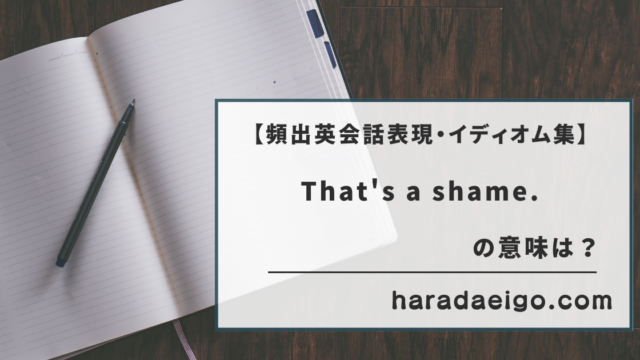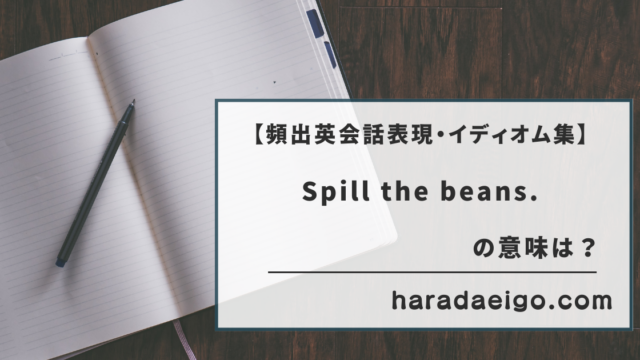[例文]
A: I was talking with Emily about the movie, and then Tom just had to butt in.
B: Yeah, he always has a habit of butting in on people’s conversations.
[日本語訳]
A: 映画についてエミリーと話していたんだけど、トムが勝手に割り込んできたんだ。
B: うん、彼は人の会話に口を挟む癖があるよね。
[解説]
“Butt in”は英語の口語表現で、誰かの会話や事務に無理やり関与すること、または不適切に割り込むことを指すフレーズです。これは、他人の問題や会話に介入して、一般的には望まれていないアドバイスや意見をする際に使用されます。”butt”は頭や端を意味し、動物が頭で突く動作や物がぶつかることを指すことが多いです。この動作から、物理的にまたは会話の中で割り込むイメージが派生したと考えられます。
[関連表現]
1.”Stick one’s nose into something.”
「他人のことに鼻を突っ込む」
2. “Mind your own business.”
「君のことに専念しなさい」
3. “Don’t meddle.”
「干渉しないで」
4. “Who asked you?”
「あなたに意見を求めた?」
5. “Keep your two cents to yourself.”
「余計なお世話だ」
[英語で説明+日本語訳]
“Butt in” is an English idiom that means to interrupt or interfere, especially in other people’s conversations or activities. This phrase is often used to describe someone who rudely or inappropriately tries to participate in conversations or activities that they were not originally part of. The word “butt” is a verb that means to push or thrust, and “in” is a preposition that implies the direction towards the inside. Hence, “butt in” literally means to thrust into, and metaphorically it means to interrupt or interfere.
「Butt in」は、「割り込む」や「邪魔をする」特に他人の会話や活動に対して、という意味の英語のイディオムです。このフレーズは、元々参加していなかった会話や活動に無礼にも参加しようとする人を表すためによく使われます。「butt」は「押す」または「突く」を意味する動詞で、「in」は「中へ」の方向を示す前置詞です。したがって、「butt in」は文字通りには「中に突き込む」を意味し、比喩的には「割り込む」または「邪魔をする」を意味します。
A: I was enjoying a quiet dinner, but then my noisy neighbor had to ( ).
B: Sounds like he always loves to intrude.
(イ) cut in (ロ) butt in (ハ) turn in (ニ) cash in
【原田英語オリジナル予想問題】
【解答・解説】
解答: (ロ) butt in
A:静かな夕食を楽しんでいたのに、うるさい隣人が割り込んできたんだ。
B:彼はいつも邪魔をするのが好きなんだね。
解説:
この文内での「my noisy neighbor had to ( ).」はAの発言に対する行動を表しています。この場合、Aが静かな夕食を楽しんでいたにも関わらず、うるさい隣人が割り込んできたという状況に対して「割り込む」という意味の「butt in」が自然です。したがって、「(ロ) butt in」が正解となります。
(イ) cut inも「割り込む」を意味しますが、主に交通の状況で使われ、この文脈では適切ではありません。 (ハ) turn inは「提出する」、(ニ) cash inは「現金化する」を意味しますが、これらはこの文脈には適していません。







